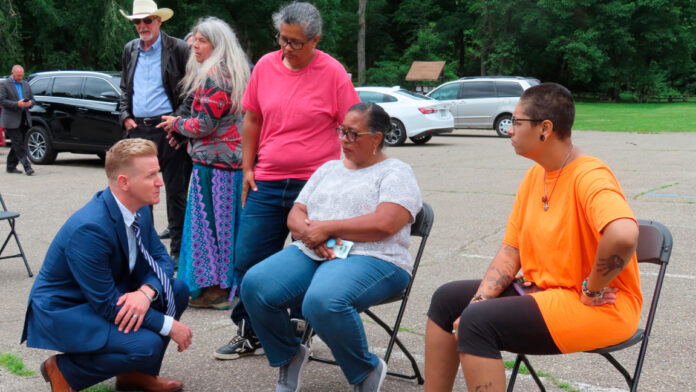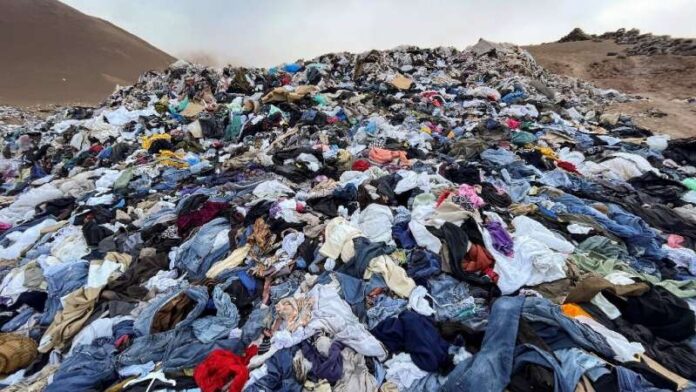The city of Atlanta is constantly growing. With new apartment complexes, new buildings and more companies coming to the city, the metropolitan of Atlanta is currently the “fourth fastest growing area in the country” (Carnes, 2019). These changes that are occurring within the city are having dramatic changes to the demographics and economy of the city, but these changes are causing detrimental environmental effects as well.
Atlanta has become one of the fastest growing cities in the Southeast of the United States. The demographic of Atlanta has been evolving over this time of constant growth. With the constant growth, the average age of the population of Atlanta has decreased and is lower than the average age of the population of the state of Georgia. In 2019, the median age of Georgia is 36.2, while in Atlanta, the median age is 33.5 (“Atlanta Georgia Population 2019”). The city has a lower median age compared to the entire state due to reasons that younger individuals are moving to the city. According to the NFIB, young people are moving to the city “because of the low cost of living, the growth of the job market, and diversified economy” (“Atlanta is top 20…”). These age differences can have adverse effects on the population that could be good or bad. Within Atlanta, the lower median age can “impact the economy significantly” with negative repercussions. (Majaski, 2019).
The economy of Atlanta is growing as well with the influx of people. The construction industry has a huge influence in the city. In order to accommodate these needs, various construction projects are constantly being started. As of June 2019, the job growth of construction is greater than any other industry in Atlanta (US Dept. of Labor, 2019). These construction projects include housing as well as corporate buildings as well. According to RealPage, the “demand for apartments outstripped new supply in Atlanta by nearly two-to-one with more than 4,200 units being rented while 2,700 new units delivered into the market” (Shchenke, 2019). This signifies that the general young population of Atlanta, constantly needs housing and in order to accommodate this, many constructions occur to provide housing for such. Although there is a huge number of construction projects occurring and benefits the city and people, these construction projects are having negative environmental effects.
Despite the construction and growth of the city being a good thing for the city, it can negative effects on the city as well. The city of Atlanta is a major city that is being affected by urban sprawl. According to Britannica, urban sprawl is the “rapid expansion of the geographic extent of cities and towns” (Rafferty, 2019). With this rapid expansion of Atlanta, it is having adverse effects on the environment and has led to drastic deforestation within the city. In order to clear space for new construction, “sprawl-fueled deforestation occurs at the rate of 50 acres per day” (Bullard). This leads to less tree cover for the area which can lead to effects such as more pollution, flooding and soil erosion (“Urban Sprawl”). Along with the effects of general pollution, flooding and soil erosion, a huge impact of urban sprawl within Atlanta is that the overall quality of air in the city will drop.
Air pollution is one of the biggest problems that is caused by urban sprawl. With urban sprawl, many individuals have an “increased dependence on automobiles and other vehicles, and high energy and water use” (“Urban Sprawl: Your Health…”). In this case, the number of cars on the highways or streets essentially increases because people are spread out and do not have sufficient public transport to get to their destination. According to the Atlanta Regional Commision, “Atlantans drive a total of more than 100 million miles per day” (“Facing the facts…”) This means that people spend a long time in their cars due to traffic and general commutes. Along with the general increase in the number of vehicles on the road, the general idea of deforestation caused by urban sprawl would be a huge effect on air pollution. Trees are a huge factor in helping in releasing water vapor and taking in carbon dioxide and other pollutants(“Urban Spawl”). WIth deforestation, there are less factors in helping in decreasing the pollutants and essentially ruin the general air quality. Over the past 15 years, Atlanta has averaged 40 ‘code orange’ days over the past Summers. These ‘code orange’ days can cause specific lung and heart disease and people are advised to stay inside. Along with the ‘code orange’ days, metro Atlanta area fails to meet national health standards for both soot and smog, and likely won’t meet these standards for at least 10 years (“Facing the facts…”). This level of air quality for Atlanta is very bad for the inhabitants and with such expansion, the city of Atlanta needs to look at the effects and find ways to help fix such environmental issues.
With the growth of the city, the city of Atlanta needs to implement solutions that allow the city to accommodate the growth, but also be able to solve specific environmental problems. Being able to connect the overall city through different means of transportation, will be a huge factor in helping the air quality of city and prevent further expansion of the city.
(2019, August 5). Retrieved from https://www.bls.gov/regions/southeast/news-release/2019/pdf/areaemployment_atlanta_20190805.pdf
Atlanta, Georgia Population 2019. (n.d.). Retrieved from http://worldpopulationreview.com/us-cities/atlanta-population/.
Atlanta Is Top 20 City for Young Professionals. (2016, April 20). Retrieved from https://www.nfib.com/content/news/economy/atlanta-is-top-20-city-for-young-professionals-73695/.
Bullard, R. (n.d.). Atlanta Megasprawl. Retrieved from http://forum.ra.utk.edu/1999fall/atlanta.htm.
Carnes, J. (2019, April 24). Why is the city of Atlanta’s population growing? Retrieved from https://www.11alive.com/article/news/local/outreach/why-guy/why-is-the-city-of-atlantas-population-growing/85-389f3547-202b-4ad4-a22f-ccfb1e7f1702.
Facing the Facts about Atlanta’s Air Quality. (n.d.). Retrieved from https://www.southernenvironment.org/cases-and-projects/fact-sheets/facing-the-facts-about-atlantas-air-quality.
Majaski, C. (2019, October 26). What Is the Working-Age Population? Retrieved from https://www.investopedia.com/terms/w/working-age-population.asp.
Schenke, J. (2019, July 16). Atlanta’s Apartment Rent Growth Ranks 3rd In The U.S. Retrieved from https://www.bisnow.com/atlanta/news/multifamily/demographic-tailwinds-help-push-atlanta-apartment-rents-up-to-third-strongest-in-nation-99894.
Rafferty, J. P. (2019, February 7). Urban sprawl. Retrieved from https://www.britannica.com/topic/urban-sprawl.
Urban Sprawl. (n.d.). Retrieved from https://www.georgiaencyclopedia.org/articles/arts-culture/urban-sprawl.
Urban Sprawl: Your Environment, Your Health | National Library of Medicine. (n.d.). Retrieved from https://toxtown.nlm.nih.gov/sources-of-exposure/urban-sprawl.


